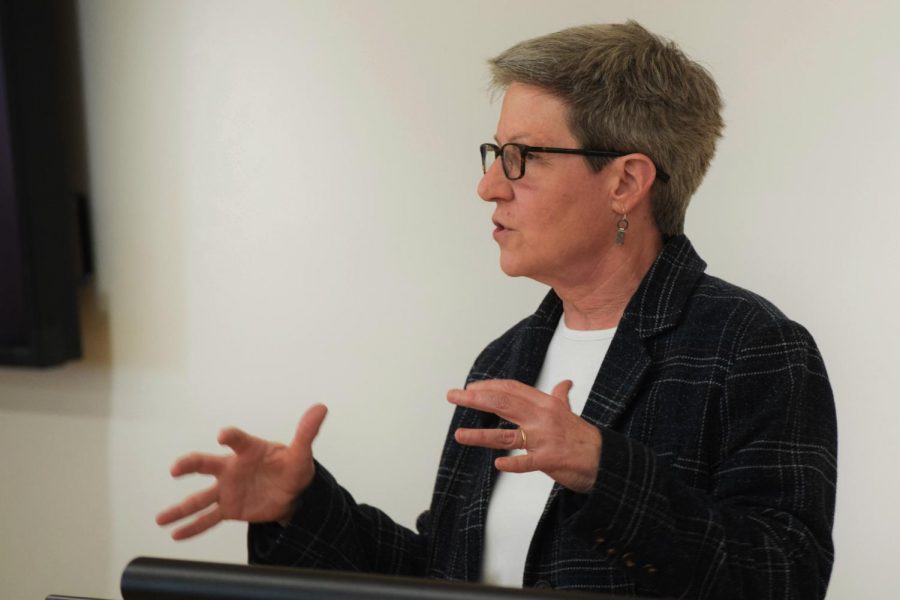AVP candidate says challenges, feedback engages students
If hired, she hopes to go on ‘listening tour,’ accessible to students
MICHAEL LINDER | The Daily Evergreen
Ellen Taylor, a candidate for the associate vice president of student engagement, talks about her previous work experience at the University of Washington.
March 29, 2018
Ellen Taylor, candidate for the associate vice president of student engagement position, emphasized the relationship between long-term challenges students undertake and lasting engagement during a presentation to campus Wednesday.
Currently an Associate Vice President for Student Life at the University of Washington, Taylor provides oversight and support for Disability Resources for Students, Community Standards and Student Conduct, the Career and Internship Center, the Counseling Center and Health and Wellness at UW.
Taylor said student-staff contact, active learning, prompt feedback and respect for diverse learning styles all lead to positive academic results.
She emphasized the importance of prompt feedback.
“They need to have their writing criticized, their oral presentation criticized, their analytical thinking criticized,” Taylor said. “I use the word ‘criticized,’ but as a positive support for [the] high-challenging environment that we need to be creating.”
Taylor said if the university is to become a top-25 school, it should be an institution where students are engaged, not only while they are there, but also when they graduate.
“We want the students to be engaged even after they go, too. We want them to leave the university feeling like they got what they came for, and maybe more,” Taylor said. “It is about building it out into the future. That’s what higher education is really about.”
She said it is important to note that academic challenge is central to student engagement. She said the university needs to recognize that students want to be challenged.
Taylor listed things such as internships, co-op experience, study abroad and some kind of culminating senior project as examples of what she described as high-impact practices.
“We have to work with students to build opportunities for them to do something that extends across the semesters,” Taylor said, “maybe even across the summer.”
Taylor said if she became associate vice president, for the first 30 days she would hear and learn as much as can to understand the concerns on campus, what is going well and what the school needs to work on.
Taylor said she would also try to get to know a lot of people, as she believes that a good leader is someone people feel that they have access to.
“I would be doing what some of us describe as a listening tour,” Taylor said. “Visiting all the campuses and learning about them. I think it’s important to know the larger context.”





















